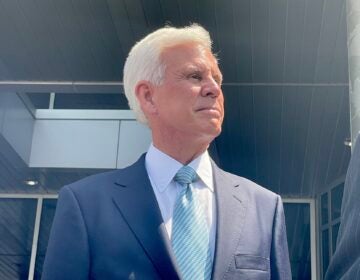Camden activists call George Norcross indictment vindication: ‘We’ve been warning everyone for years’
Black and Latino activists have raised concerns about Norcross and his supporters for years, but said their concerns and complaints were ignored by city and state officials.
Listen 3:29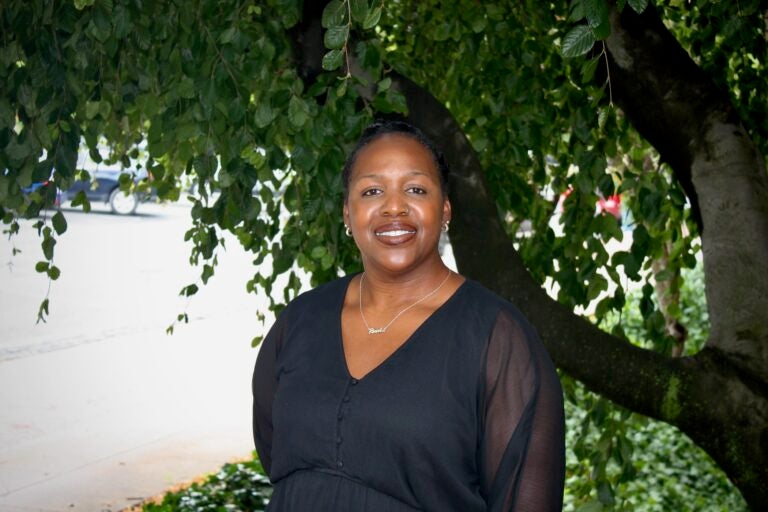
Ronsha Dickerson, co-founder of the Camden Parent Union and chair of the Camden We Chose coalition, said she and other activists have been warning people for years about George E. Norcross III's abuse of power. (P. Kenneth Burns/WHYY)
From Camden and Cherry Hill to Trenton and the Jersey Shore, what about life in New Jersey do you want WHYY News to cover? Let us know.
Camden community activist Ronsha Dickerson remembers the day when prosecutors announced the indictment against South Jersey Democratic power broker George E. Norcross III.
“Everyone’s phone was blowing up,” Dickerson, co-founder of the Camden Parent Union and chair of the Camden We Chose coalition, said. “We’ve been warning everyone for years that this was going on, the collusion, the corruption, the poli-tricks, as we call it in the community. We were doing everything and we were holding our own integrity.”
In June 2024, New Jersey Attorney General Matthew Platkin announced a 13-count indictment against Norcross and his brother Philip A. Norcross, former Camden Mayor Dana L. Redd, logistics executive Sidney R. Brown, attorney William M. Tambussi and developer John J. O’Donnell. The indictment alleges that Norcross and his associates masterminded a criminal enterprise and manipulated a New Jersey tax credit program for personal gain by taking over Camden’s waterfront properties through extortion and coercion among other charges.
George Norcross and his associates pleaded not guilty to all of the charges, denouncing the allegations as politically motivated. Their attorneys have filed a motion to dismiss the case, which will be heard on Jan. 22.
Daniel Fee, George Norcross’ spokesman, declined interview requests from WHYY News for this story.
Each member of the Norcross enterprise faces first degree racketeering, or RICO, charges. Prosecutors must prove how a series of individual crimes are connected in the conspiracy.
“For example, let’s say you paid off a government official, or let’s say you falsified business records and you undervalued a piece of property, or, let’s say, you lied to the government about what you were going to do with the property. Each of those are separate crimes,” said Diane Peress, adjunct professor at John Jay College of Criminal Justice in New York City. “In a RICO case, you’re basically taking several crimes and you are stringing them together to say that these are part of a criminal enterprise, it’s almost like saying that this is a company.”
Peress, a former prosecutor and former chief of Nassau County’s Economic Crimes Bureau, said it takes time to conduct RICO investigations in order to make all of the connections.
For some activists in Camden, who have battled George Norcross for years over what they claim to be his misuse of power, the indictment has been a long time coming.
The rise of the Norcross enterprise
In a 2014 interview with the Star-Ledger, George Norcross said that when then-state Republican Sen. Lee Laskin refused to name Norcross’ father, a fan of horse racing, to a racing commission, he devised a plan to oust Laskin from his Senate seat, and take over the Board of Freeholders.
George Norcross recruited John Adler to run against Laskin and convinced Jim Beach, Jeff Nash and Vince Sarubbi to run for freeholder. The three candidates won and became the only Democrats to defeat Republican incumbents anywhere in the state that year. That changed the power dynamic in the county and the region.
Around the same time, Teddy Hinson, a powerful Democrat who was once executive director of the Camden Parking Authority, recruited Dana Redd to serve as an aide to two Camden County Freeholders. She served in several public sector positions before joining city council in 2001. Redd, who is also a co-defendant in the indictment against George Norcross, was appointed as state senator by the mid-2000s.
Troy Oglesby Sr., a longtime community activist and former law enforcement officer, said a lot of the elected politicians in Camden came through the Camden County Democratic Committee, which Norcross chaired from 1989 until 1995. The common perception was you needed Norcross’s blessings for any political role in South Jersey.
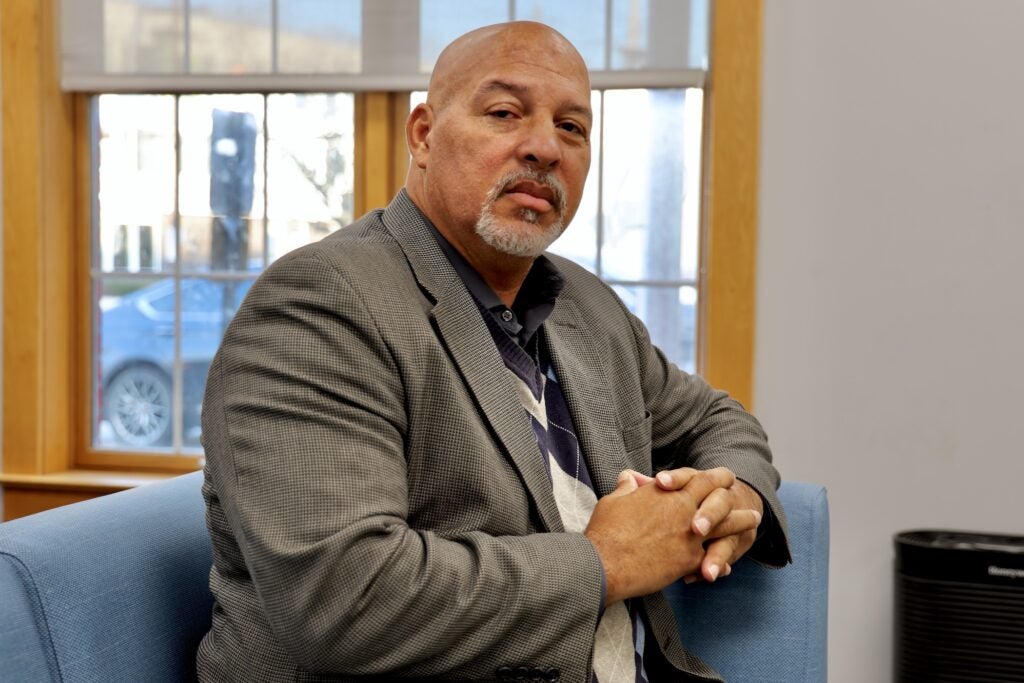
“We saw the development of politics done through what they called the Young Democrats,” he said. “What was happening was there were some individuals that were being nurtured and directed into politics in the city of Camden.”
Redd was one of them.
Dickerson said Redd’s trajectory could’ve taken her to the governor’s mansion. Instead, she added, it felt that Redd was given orders by George Norcross to step down and run for mayor in 2009.
“She was the darling of Camden,” Dickerson said. “She didn’t really have a rebuttal of why she came back to Camden. It was just like, ‘I love Camden, I want to see Camden do well. We want to move Camden forward.’ And that became a slogan for everything moving forward with Camden.”
What was Norcross’s agenda for Camden?
In a July 2011 meeting with the Philadelphia Inquirer’s editorial board, George Norcross shared his ideas of establishing charter schools across the city and setting up a county police force to “improve” Camden.
One of his arguments was that if people don’t feel safe coming to Camden for medical services, Cooper University Hospital will suffer. He said Camden could be safer if more officers were on the street, which could only be accomplished by transitioning to a countywide police force.
He also argued that charter schools would give more competition to the remaining public schools and believed it would challenge teachers to be more competitive.
According to the article, Norcross held “a series of community group meetings” and wrote newspaper commentaries about education reform.
But community activists in Camden contend that residents were never included in the process.
“Everyone’s just done it in a spirit of politics,” Dickerson said. “That’s not how you get what’s needed in Camden.”
In March 2013, then-Gov. Chris Christie announced a takeover of city schools, a move Norcross supported. The Camden city police force disbanded in May 2013, when the county department was launched and took over patrolling the city.
In a transcript of a conversation from Sept. 30, 2013 that is included in the indictment, Philip Norcross described to a group of individuals how he and his siblings implemented his brother George’s agenda for Camden.
“So, [GEORGE E. NORCROSS, III’s] first two initiatives were getting the schools uh, semi-fixed. And then we regionalized the police force, and made it a county police force . . . and then what we did just a few weeks ago is, and this probably is not such a good thing, we re-wrote a tax credit law in New Jersey, that says in essence, if you come to Camden, we’re going to give you one hundred percent tax credit for all capital and related costs,” the indictment reads. “As long as you bring some jobs in. Over ten years, it’s a hundred 20 percent and it will cause real havoc, it’s unlimited.”
The fight for democracy
In 2016, activists filed a lawsuit seeking to return to an elected school board. They cited a provision in the 2010 law that gave Redd and Christie the power to appoint school board members but said residents could decide in 2014, whether they wanted an appointed or elected school board.
Tambussi, George Norcross’ long-time personal lawyer and another co-defendant, represented the school district. He argued that the state’s takeover supersedes the original law.
Judge Michael Kassel ruled in favor of the school district in 2016. Dickerson recalls the legal fight that ultimately took three years.
“Every judge that we went to said, ‘This is not a case,’” she said. “Then we finally get to appellate court in Trenton.”
Dickerson recalls the three-judge panel rigorously questioning Tambussi.
“[They] asked, ‘Where’s the state takeover, the Urban Hope Act, QSAC and the ability not to vote for your school board? Where’s that happening?’ They couldn’t name where,” she said.
Though the Appellate Division of Superior Court ruled in favor of the activists, Dickerson said they had new challenges including educating voters on the ballot question: “Shall the Camden City Board of Education remain a Type I school district with the Board of Education members appointed by the Mayor of the City of Camden?”
To regain an elected school board, residents needed to vote ‘no.’
Oglesby said it was “a long, long fight.”
“We went door to door,” he said. “We had to make sure that people understood that we would have no voice if we were to lose the Camden advisory board for the schools.”
Dickerson remembers the establishment, George Norcross and his supporters, would outspend activists, encouraging residents to vote “yes.”
“There was a letter that was sent out from [then-Mayor] Frank Moran … from him and every former mayor of Camden City, telling everybody to vote ‘yes,’” she recalled. “Every time that we put a mailer out that was paid for by us, and [Camden Education Association] and [New Jersey Education Association] and other people [that] were supporting this educational fight … saying vote ‘no,’ they would put three out, saying vote ‘yes.’”
On Election Day, Dickerson recalls tactics used to discourage them from campaigning for an elected school board.
“They brought the person out that does the line from how far you can stand next to the door to the polling site,” Dickerson said. “We were standing out there, and we fought to get everyone we could possibly think of to go out there and vote.”
Ultimately, Camden residents voted to restore their elected school board, but it continues to operate in an advisory role.
The fight is ongoing for advocacy groups because the candidates who ran for school board were being backed by Camden City Democrats. Seats on the school advisory board are supposed to be nonpartisan. With the Democratic Party in Camden still heavily influenced by George Norcross, party backing is tantamount to earning his endorsement.
“We’re screaming ‘Is this legal for them to have the school board candidates who are nonpartisan to be on a ticket with people who are clearly Democrats and saying they’re saying, these are our picks?’ Dickerson said, adding that the party was giving money to their preferred picks, and defeating candidates supported by grassroots organizers.
“It’s a takeover again of what the people worked hard for,” she added. “Now … you have who the mayor and the superintendent … are favoring to be the new seats of the school board.”
Where are the promised jobs for Camden residents?
In 2014, Holtec International, an energy equipment company where George Norcross was a longtime board member, received $260 million in tax incentives through the Grow NJ program. It was one of the largest tax breaks in the history of the Garden State. The deal required the company to move from Marlton to Camden, build a factory and create 250 jobs. The Grow NJ is at the center of the indictment against the Norcross Enterprise.
Tax credits are an element of the indictment against George Norcross. The same incentive programs that lured companies to Camden are the same ones prosecutors say George Norcross used to enrich himself and his allies.
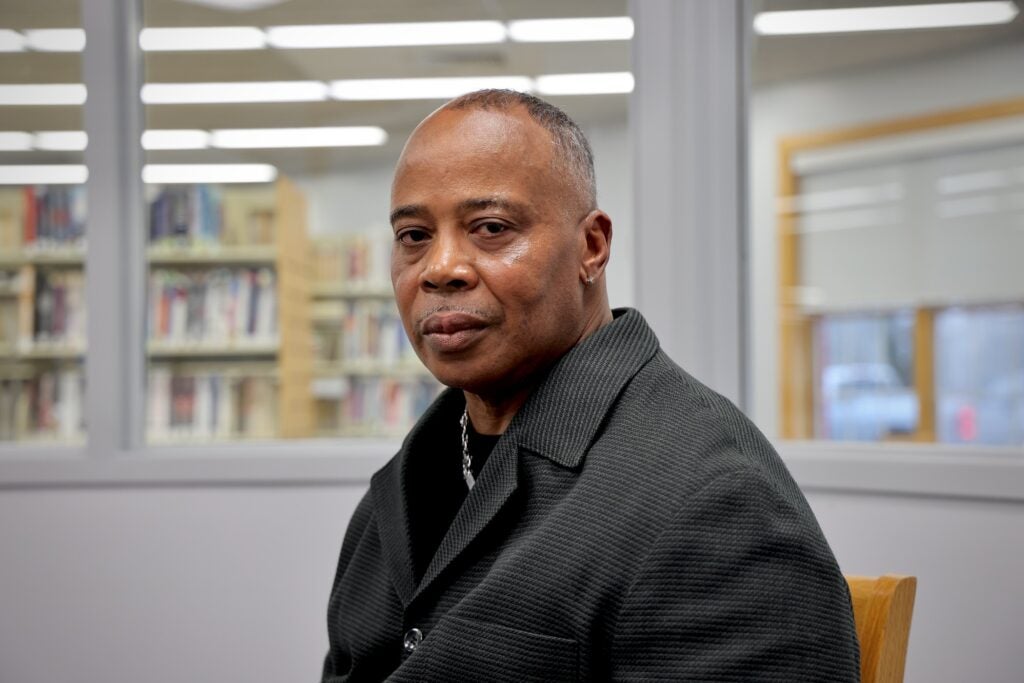
Darnell Hardwick, who is a former president of Camden’s NAACP chapter, said he and others inquired how many Camden residents were on Holtec’s payroll, but they never received an answer.
“[The company representatives] would point to the African Americans or minorities working there, but they would never give us any data to support that they do have Camden residents working there,” he said. “From talking to people there, those minorities that they did show us there, they weren’t Camden residents. They were from surrounding counties.”
Dickerson and others scrutinized legislation and other government records to make their case about Norcross and his allies.
“We forced the hand of the idea of ‘Camden moving forward, Camden’s rising’ to show that no one from Camden is getting good jobs at these places,” she said.
Holtec is one of several companies with ties to George Norcross that collectively received $1.1 billion in tax incentives, according to a 2019 WNYC and ProPublica investigation. Gov. Phil Murphy created a task force earlier that year after a state audit found “numerous significant deficiencies” in the EDA’s oversight of tax incentive programs.
At Senate hearings, where George Norcross testified and defended the tax credits companies received for moving to Camden, activists invited state officials to tour Camden on what they called an “equity bus tour.”
“We invited the chair, we invited other people and also anybody from the governor’s office that want to come and hop on the bus with us to talk about what we call the front yard and the backyard of Camden,” Dickerson said.
In Dickerson’s analogy, the front yard is the waterfront where new construction was taking place, while the back yard represents the forgotten areas of the city.
“You drive less than a mile up Broadway, you’ll see drugs, you’ll see less landscaping, you’ll see prostitution, you’ll see all these things, but in the middle of that is schools, it’s community parks, it’s people who live there,” she said. “Our question was, what is this money going towards? Where will it help to build when you’re bringing in these corporations that are paying no taxes? How would it benefit the people who live inside the city?”
Activists, again, turned to the referendum process.
They sought an ordinance requiring companies of at least 25 employees that received tax breaks to disclose how many Camden residents were hired.
The city denied the petitions for referendum and rejected a chance for activists to remedy the petitions.
But, Mayor Vic Carstarphen and City Council President Angel Fuentes came out in support of the ordinance. George Norcross endorsed the idea as their initiative in a newspaper op-ed.
The ordinance, adopted in 2022, requires companies to report semi-annually to the city the number of Camden residents they’ve hired. To date, some companies are still not complying with the new law, according to city officials.

Antionette Miles, state director of New Jersey Working Families Party, hailed getting the ordinance a victory for activists who “have asked for democracy every step of the way.”
The party has worked with activists in Camden for several years. Miles called the indictment vindication for the city’s grassroots activists.
“There are not many people who are willing to speak [up] and stand with Black and brown community organizers and say the things that need to be [said] in the face of a very powerful and very influential political establishment,” she said.
‘It was tea’
The criminal indictment is bringing a renewed sense of optimism among Camden activists. Many who were interviewed for this story said they now feel seen and heard.
Keith Benson Sr., a longtime community activist in Camden, said the charges against Norcross reminded him of the Rev. Dr. Martin Luther King’s quote, “the arc of the moral universe is long, but it bends toward justice.”
“I had started to doubt that, but I said, ‘Oh, that’s what he meant,’” he said. “There’s a little bit of justice. It’s not full justice yet, but there’s a little bit of justice right there.”
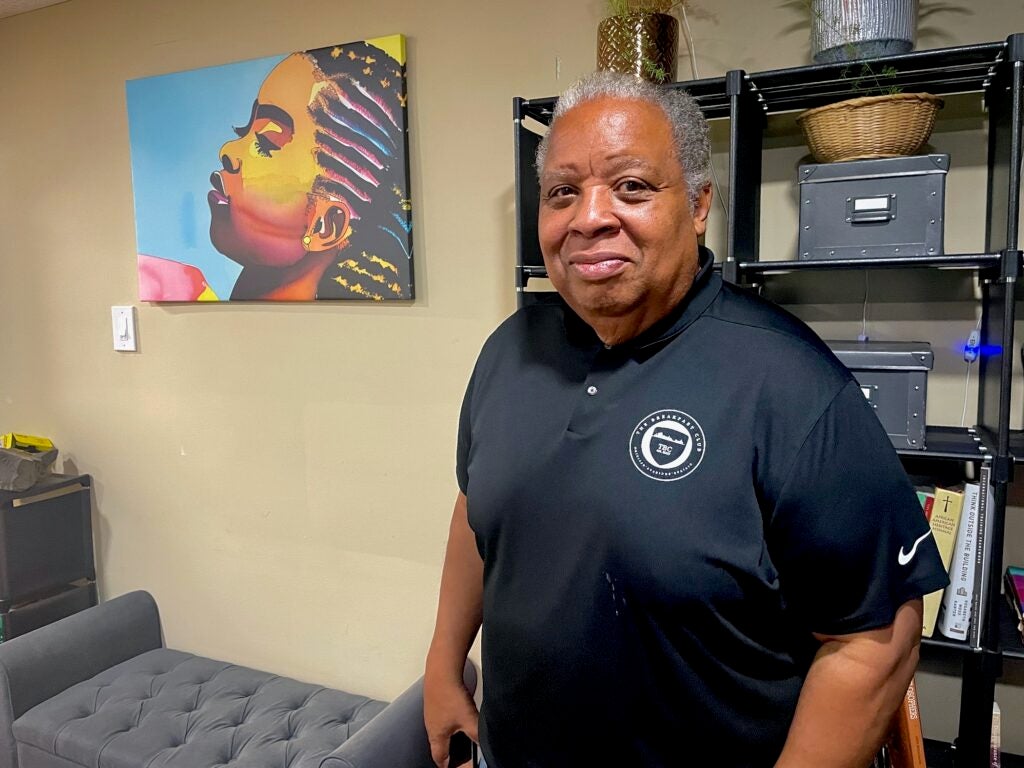
Benson said despite what Camden residents had to endure, and their simmering frustration over lack of intervention from state officials, residents and community activists are thrilled with the end result.
“Because maybe, just maybe, we can get some normalcy and some democracy, some decency, and, quite frankly, some resources to the people again,” Benson said.
For Ronsha Dickerson, the real story of Camden is finally unfolding.
“As the young kids say, it was tea,” she said.

Get daily updates from WHYY News!
WHYY is your source for fact-based, in-depth journalism and information. As a nonprofit organization, we rely on financial support from readers like you. Please give today.



